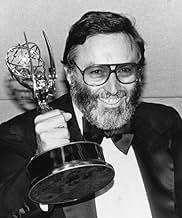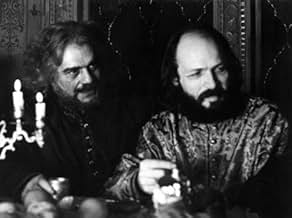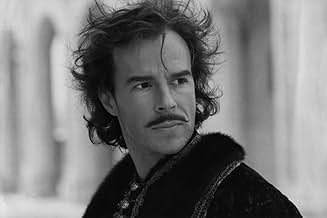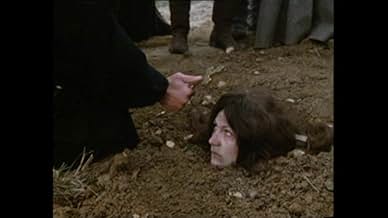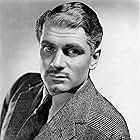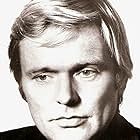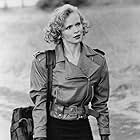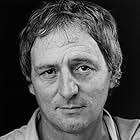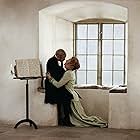Biopic of Peter I, Czar of Russia, from childhood in 1682 to the Great Northern War against Sweden during the 1700s.Biopic of Peter I, Czar of Russia, from childhood in 1682 to the Great Northern War against Sweden during the 1700s.Biopic of Peter I, Czar of Russia, from childhood in 1682 to the Great Northern War against Sweden during the 1700s.
- Won 3 Primetime Emmys
- 5 wins & 8 nominations total
Browse episodes
Storyline
Did you know
- TriviaSir Laurence Olivier, who had difficulties remembering his lines, initially (very politely) refused to work with dialogue boards. Only after the dialogue coach asked his co-star Maximilian Schell to tell him that all actors worked with boards, he agreed to do so.
- ConnectionsFeatured in The 38th Annual Primetime Emmy Awards (1986)
Featured review
This melodramatic Russian patriotic mini-series is supposed to depict the life of Peter the Great but purposely skips the most important incidents of the era. Much worse however is the way it attempts to re-write history to make Russia appear the helpless victim of an imperialistic and aggressive Sweden (at the time a Great Power in Europe), when in reality a weakened Sweden was attacked by a Russian/Polish/Danish alliance.
The Swedish king, Karl XII, is depicted as a foppish young womanizer, which is about as far from the truth you can come. At the same time, Peter is shown as a balanced visionary, with the prophetic (and ominous) vision that Russia's future (expansion) lies in the West. While it is true that Peter was in a sense the father and architect of modern Russia, he was also a drunkard and a ruthless imperialist. Furthermore the battles that are covered by the mini-series have basis in reality only as to the locations and the final outcomes (the Swedish army was always outnumbered by at least 3-1, had to attack heavy fortifications at Poltava, etc).
Few people realize just how pivotal this forgotten war between Sweden and the Russian alliance actually was. Had Sweden won (which it very nearly did), St. Petersburg would never have been built, Russia would have had no access to the Baltic Sea, and would likely have lost some territory as well as a huge sum of money - it would probably never have become the Great Power we know today. I can only recommend this mini-series to romantic Russian patriots and imperialists, who will no doubt swallow this falsified account of history without too much trouble.
The Swedish king, Karl XII, is depicted as a foppish young womanizer, which is about as far from the truth you can come. At the same time, Peter is shown as a balanced visionary, with the prophetic (and ominous) vision that Russia's future (expansion) lies in the West. While it is true that Peter was in a sense the father and architect of modern Russia, he was also a drunkard and a ruthless imperialist. Furthermore the battles that are covered by the mini-series have basis in reality only as to the locations and the final outcomes (the Swedish army was always outnumbered by at least 3-1, had to attack heavy fortifications at Poltava, etc).
Few people realize just how pivotal this forgotten war between Sweden and the Russian alliance actually was. Had Sweden won (which it very nearly did), St. Petersburg would never have been built, Russia would have had no access to the Baltic Sea, and would likely have lost some territory as well as a huge sum of money - it would probably never have become the Great Power we know today. I can only recommend this mini-series to romantic Russian patriots and imperialists, who will no doubt swallow this falsified account of history without too much trouble.
Details
Contribute to this page
Suggest an edit or add missing content



